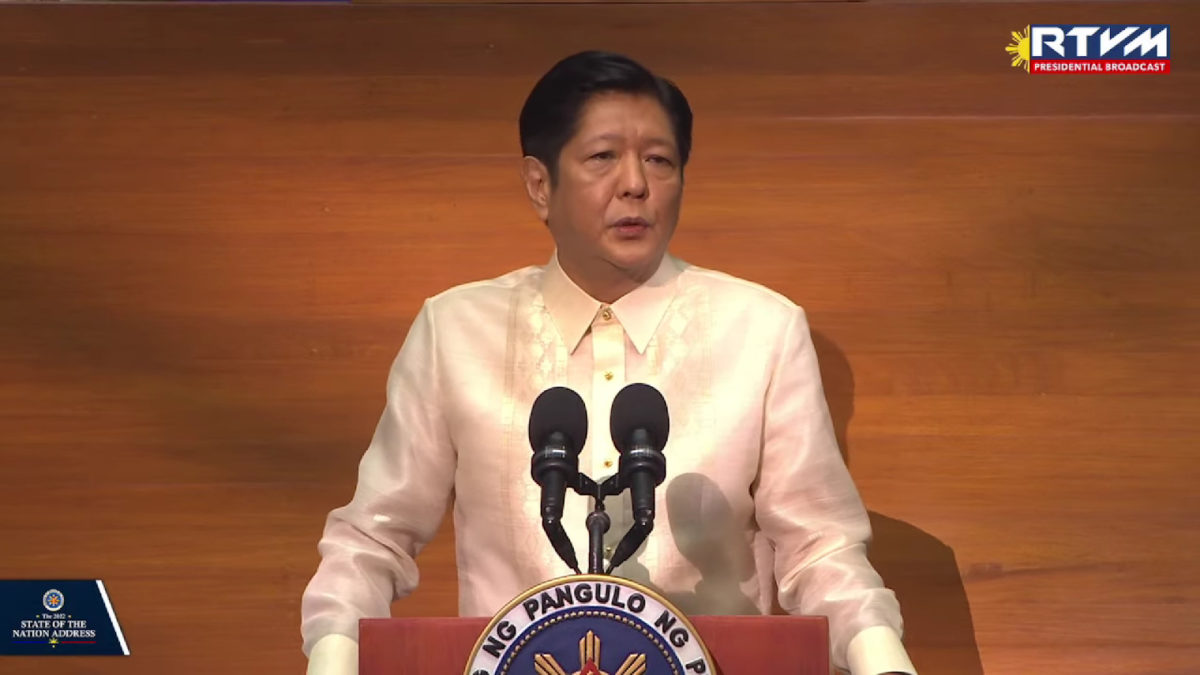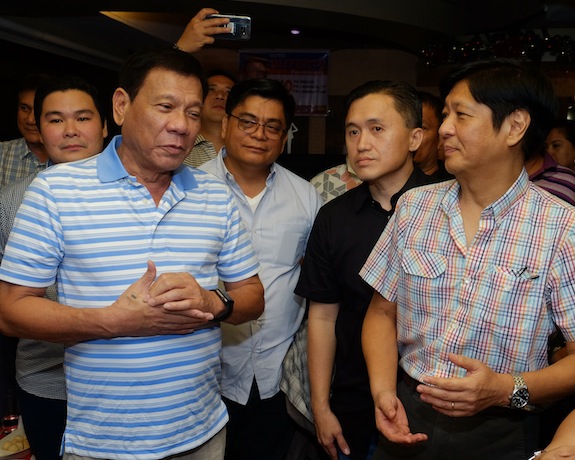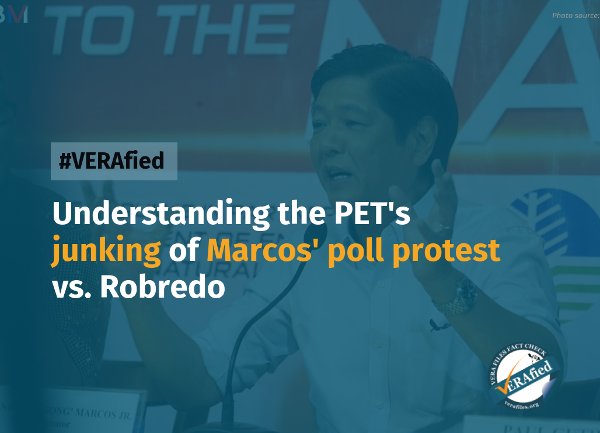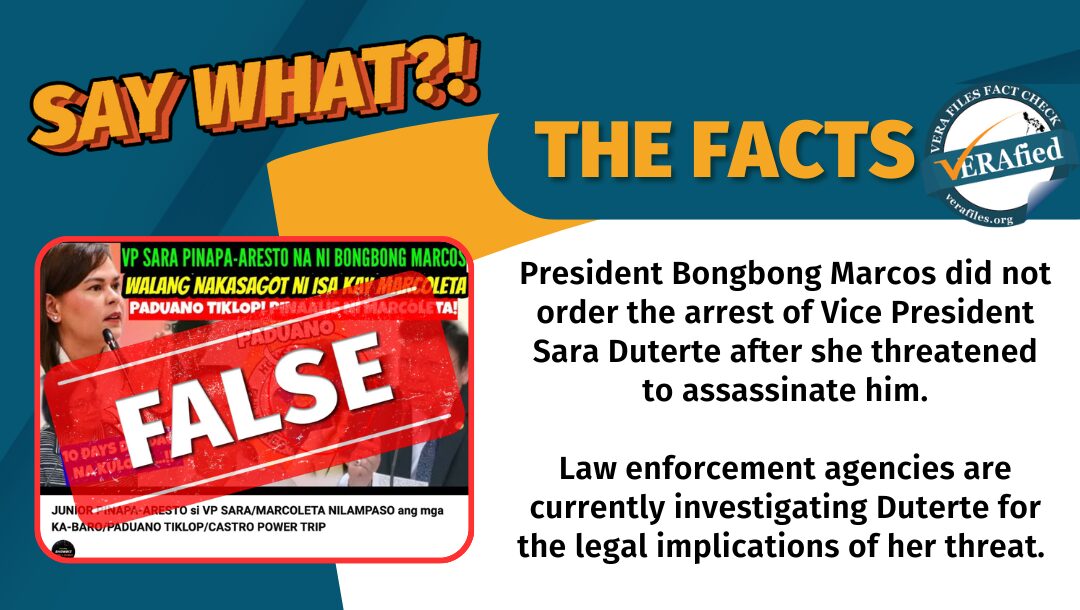For one hour and 15 minutes, President Ferdinand Marcos, Jr. on Monday delivered his much-awaited first state of the nation address (SONA) covering a gamut of well-known issues and challenges facing the country, but failed to touch on other pressing topics such as corruption, human rights violations, press freedom, national security and charter change.
There was nothing on his plans to fight the illegal drugs problem, a favorite subject of his predecessor; his peace agenda amid red-tagging incidents and the insurgency problem; and low wages. These are key issues that some sectors and detractors consider to be controversial and hoped Marcos would address.
Instead, Marcos declared an end to lockdowns even amid reports of an uptick in COVID-19 cases, stressing the need to balance public health with efforts for economic recovery. The announcement received cheers and applause, followed by a standing ovation when the President pledged to establish more regional health facilities and a center for disease control and prevention.
“Wala na tayong gagawing lockdown. Dapat nating balansehin nang maayos ang kalusugan at kapakanan ng ating mga mamamayan sa isang banda, at ang ekonomiya naman sa kabilang banda. Nakikipagtulungan ang iba’t ibang ahensya ng pamahalaan sa pag-monitor sa mga COVID-19 hospital admission upang makatiyak tayo na may sapat na kapasidad ang ating health care system, at maiwasan ang pagsipa ng bilang ng nagkakasakit,” he said.
“Napakinabangan natin nang husto ang malalaking specialty hospitals gaya ng Heart Center, Lung Center, Children’s Hospital at National Kidney and Transplant Institute. Kaya maliwanag na hindi lang dapat dito sa National Capital Region, kundi maging sa ibang parte ng bansa… upang mailapit natin ang health care system sa taumbayan nang hindi sila kailangang pumunta sa sentro ng kanilang bayan, lalawigan o rehiyon, ay maglalagay tayo ng mga clinic, mga RHU (rural health units) na pupuntahan ng mga doktor, nurse, midwife, medtech, isang beses, dalawang beses sa isang linggo,” Marcos added.
Almost as soon as he took to the podium at the newly refurbished plenary hall of the Batasang Pambansa, Marcos began a litany of his plans for the country’s economic recovery that includes a value-added tax on digital service providers expected to bring in P11.7 billion in revenues in 2023 and full support for economic zones to bring in strategic industries as he pushed to make the country an investment destination. However, there were no measures that would provide immediate relief from rising food and fuel prices or unemployment.
Marcos’ strong statements about protecting the country’s sovereignty in obvious reference to the South China Sea territorial dispute and continuing pursuit of an independent foreign policy were well-received.
“I will not preside over any process that will abandon even a square inch of territory of the Republic of the Philippines to any foreign power. With respect to our place in the community of nations, the Philippines shall continue to be a friend to all — an enemy to none,” he said.
To address concerns on food security since he also holds the agriculture portfolio, the President talked about a program to increase production in the next planting season and in the long term by providing financial assistance to farmers and fishermen as well as modernizing farming technology.
“Magbibigay tayo ng pautang habang mas ilalapit natin sa sektor ng agrikultura ang hindi gaanong mahal na farm inputs na bibilhin na ng bulto ng gobyerno. Kabilang dito ang abono, pestisidyo, mga punla, feeds, fuel subsidy at ayuda para sa mga karapat-dapat na benipisyaryo,” he said.
Marcos revealed that he would issue an executive order declaring a one-year moratorium on interest payments and land amortization so farmers and agrarian reform beneficiaries can channel their resources to develop their farms.
“Congress must also pass a law that will emancipate the agrarian reform beneficiaries from the agrarian reform debt burden, thereby amending Section 26 of Republic Act 6657. In this law, the loans of agrarian reform beneficiaries with unpaid amortization and interest shall be condoned,” he urged. “(Those) who are still to receive their awarded land under the Comprehensive Agrarian Reform Program shall receive it without any obligation to pay any amortization.”
On the education front, Marcos reiterated plans to return to full face-to-face classes in the coming school year and make military training for students mandatory. He said a review of the continuation and viability of the K-12 program is ongoing even as he highlighted the advantage Filipinos enjoy for their proficiency in speaking English.
“The question of our medium of instruction must be continuously re-examined to maintain that advantage that we have established as an English-speaking people,” he stressed.
Marcos also discussed the need to boost the tourism industry by providing easy access to travel destinations in the country and building more airports as part of his intention to pursue the infrastructure program of former president Rodrigo Duterte.
“My order to the Department of Transportation is really very simple: full speed ahead,” he said.
The President mentioned plans to increase energy production by pushing for renewable energy, providing incentives for the development of natural gas, and reviewing the policy on nuclear energy. He pointed to the need to take a closer look at the country’s energy transmission and distribution system with a view to lowering the price of power.
“We will provide investment incentives by clarifying the uncertain policy in upstream gas, particularly in the area close to Malampaya. This requires clarification of the processes and review of service contracts policy. I believe that it is time also to re-examine our strategy towards building nuclear power plants in the Philippines,” he stressed.
Marcos also discussed plans to improve the situation of overseas workers, especially those in Saudi Arabia which has closed its doors to Filipinos and pushed for laws to protect the environment.
To support his road map, Marcos asked Congress to prioritize 19 bills. These include a “rightsizing” program of the national government, a budget modernization bill to institutionalize a cash-based system; a tax package that will establish real property values; creation of a national disease prevention management authority and an institution to provide financial assistance to small businesses; and an enabling law for the natural gas industry.
At the end of his speech, a sober Marcos described the risks and challenges ahead as dark clouds, but said that he saw sunlight through them.
“We have assembled the best Filipino minds to help navigate us through this global crisis that we are facing. We will endure. Let our Filipino spirit ever remain undimmed. I know this in my mind, I know it in my heart, I know it in my very soul — the state of the nation is sound,” he concluded.
Read more about each specific sector below:
On agriculture
Marcos Jr. vowed to suspend for a year the payment of land amortization and interest payments to enable farmers to “channel” their resources towards improving farm production and capacity. This will complement his plan to respond to the continuing food price hikes and the looming scarcity of food supply through modernizing farming, fishing, poultry, and the meat sectors with newer technologies and equipment.
The president is looking to revive Kadiwa centers – the Marcos Sr. administration’s response to the same problems the country faced due to the 1973 oil crisis – to bring “affordable” food prices closer to the public.
On the environment
The president’s “top agenda” for the environment is the use and exploration of renewable energy resources in the country to address the risks posed by being “one of the most vulnerable countries to the effects of climate change.” However, he did not touch on any concrete plans to address the climate crisis beyond capacitating the energy sector. Marcos Jr. mentioned that the Philippines’ environmental laws must be properly enforced especially with companies that exploit the country’s natural resources, but failed to name any specific law that needs a stronger enforcement against industries that reap natural resources, such as nickel mining that harms the country’s water systems and forests.
On the economy
Marcos put forward his economic team’s “ambitious” goals under the Medium-Term Fiscal Strategy (MTFF) that will be submitted to the Congress for adoption. The strategy includes increasing real gross domestic product (GDP) by 6.5% to 7.5% this year; reducing poverty incidence to 9% and reaching a 3% national government deficit-to-GDP ratio by 2028; and attaining a less than 60% national government debt-to-GDP ratio by 2025..
The president says the COVID-19 pandemic has “beset the macroeconomic environment with challenges and a series of external shocks.” But he is positive that “economic growth momentum remains firm,” pushing for the implementation of a cash-based budgeting system and the remaining tax reform packages under the CREATE Law.
On health
Highlighting the need to balance health and economic recovery, Marcos said he will no longer impose lockdowns amid the current COVID-19 crisis. As the country learns to live with the virus, he intends to focus on better booster rollout and information dissemination on COVID-19 to minimize the risk of hospitalization and death.
To build a “stronger healthcare system,” Marcos promised to acquire cheaper medicines and “improve the welfare” of medical frontliners. He also urged the Congress to prioritize bills that will create the Philippine Center for Disease Control and Prevention, the Vaccine and Virology Institute of the Philippines, as well as the Medical Reserve Corps.
On infrastructure
Recognizing that infrastructure is the backbone of an economy, the president vowed not only to continue but also expand the infrastructure programs of the Duterte administration. Ongoing projects will not be suspended. Infrastructure spending will be sustained at 5 to 6 % of the Gross National Product. Private sector participation in infrastructure development programs will be encouraged.
Among transportation projects, Marcos said the government has been missing a “great opportunity” for not developing existing railway systems. He said there are “dozens” of rail projects at various stages of development, such as the North-South Commuter Railway System and the 33-kilometer Metro Manila Subway Project, which have a combined cost of P1.9 trillion.
On transportation
The administration will pursue the Duterte administration’s shelved railway projects such as 102-kilometer Mindanao railway project and Cebu Monorail, as well as the revitalization of the defunct Panay railway project. In Metro Manila and nearby provinces, other commuter railway systems such as the North-South line, the Light Rail Transit-Cavite extension and the Metro Railway Transit common station that will connect LRT 1 and MRT 3 and 7 will likewise be completed.
On energy
Noting that the country’s demand for energy far exceeds available supply, the president underscored the need to increase the level of energy production, including the building of new power plants and developing other traditional and renewable energy sources. He said the government may have to review its strategy toward nuclear power plants.
He also mentioned the need to clarify uncertain policies in upstream gas and to review the service contracts in the Malampaya natural gas project.
On basic services
Marcos highlighted the Social Welfare department’s purging of over 1 million “graduated” or ineligible recipients from the list of Pantawid sa Pamilyang Pilipino (4Ps) program. He also mentioned Social Welfare Secretary Erwin Tulfo’s call to preposition relief goods in localities.
Hoping to rehabilitate the country’s water system, Marcos instructed the Department of Environment and National Resources and the Department of Public Works and Highways to pursue public-private partnerships. Similar to his predecessor Rodrigo Duterte’s promise in 2019, a law to create a Department of Water Resources is included in the president’s legislative agenda.
The president instructed the Information and Communications department to improve connectivity in geographically disadvantaged areas through the “Broadband ng Masa” project. His administration also aims to issue 92 million national IDs by mid-2023 to ease transacting with government offices.
On foreign relations
Marcos reiterated his campaign stance on not ceding “even a square inch” of Philippine territory to “any foreign power,” referring to its sea dispute with China, and committed that he will “not preside over any process” that would entail such.
The president said the Philippines would continue to be a “friend to all and an enemy to none” under his watch and that his government is willing to “collaborate and cooperate (with neighbors) with the end goal of mutually beneficial outcomes.”
Marcos also said the country will “stand firm” in its “independent foreign policy” and that he will continue to “promote stronger and multi-faceted relationships” with partners around the world.
On education
Giving a nod to his vice president and nominated education secretary Sara Duterte-Carpio, Marcos said the Department of Education (DepEd) is preparing to transition to a complete in-person classes setup “with utmost consideration for the safety of students.” In line with this, he ordered the Interior and Local Government Department to work with the Department of Health in the administration of vaccine and booster shots for the students.
Marcos also confirmed “lengthy discussions” are in place regarding the “continuation and viability of the K to 12 school system.” Duterte-Carpio earlier said DepEd will soon start its review of the implementation of the basic education program for Grades 11 and 12. Review for levels Kindergarten to Grade 10 was already fulfilled by the previous administration.
The president included in his list of priority legislation the reinstatement of the mandatory Reserve Officers’ Training Corps (ROTC) and National Service Training Program (NSTP) for all senior high school students.
Although Marcos mentioned the plan to offer refresher courses and re-training for teachers, he made no mention of increasing their salaries — a promise dubbed by his camp as one of his “major campaign advocacies” prior to the 2022 elections.
On labor, OFWs
Marcos highlighted his plans for the newly established Department of Migrant Workers (DMW) in his speech. He directed the agency to work with the Department of Foreign Affairs to ensure that overseas Filipino workers (OFWs) who were driven out of their jobs by the pandemic are able to return to work.
Also among the president’s plans is to launch the One Repatriation Command Center that will focus on rescuing migrant Filipino workers that experience abuse or are in danger. Marcos likewise said his government is discussing with Saudi Arabia the possible resumption of deployment of OFWs in the country, while ensuring that Filipino workers’ rights are protected and that they get adequate pay.
In terms of job generation, Marcos regarded the tourism sector as “an important economic development tool” as it presents opportunities for regular employment, especially for the people in the grassroot communities. Similarly, the president maintained that infrastructure development is a necessary priority that drives “growth and employment.”
On good governance
Marcos recommended to Congress the enactment of a National Government Rightsizing Program which aims to reorganize the “system and processes of the different agencies” and abolish redundant offices, while ensuring a more efficient use of government resources.
Marcos also proposed the priority passage of an e-government master plan that seeks to digitize all online government services and processes.
On AFP modernization
Marcos urged the prioritization of amending the “antiquated” National Defense Act of 1935, which will restructure the current organization of the Armed Forces of the Philippines (AFP) ahead of current and future national security concerns. He made no mention of the modernization of the AFP which is currently in its second phase.
On the peace agenda
President Marcos did not mention anything about his plans for peace talks with communist insurgents. He did not touch on the current state of the Bangsamoro region.
On media, corruption
Marcos also kept mum on his plans involving the media, and on addressing corruption.
— with contributions from Ellen Tordesillas, Chi Liquicia, Tita C. Valderama, Elma Sandoval, Charmaine Deogracias, Meeko Angela Camba, Celine Isabelle Samson, Sarah Escandor-Tomas, Elijah Roderos, Ivel John M. Santos, Merinette Retona, Nica Rhiana Hanopol, Blanch Ancla, Enrico Berdos, Bryan Manalang, Tatiana Maligro, Renz Palalimpa, and Rhenzel Raymond Caling
Editor’s note: This article was updated to correct the information on expected revenue from value-added tax on digital service providers. The original version of the article noted P1.17 billion in revenues in 2022, when it should be P11.7 billion in 2023. We apologize for the error.





